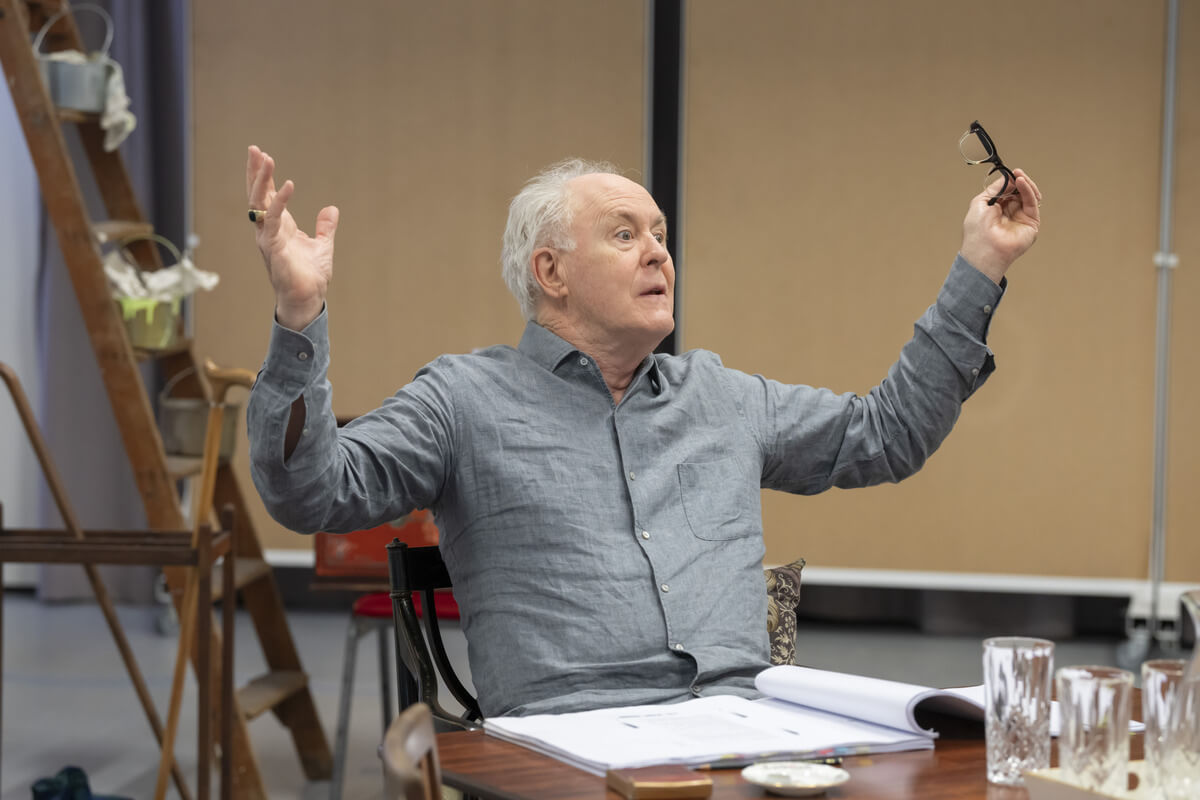Set in Frankfurt at various times between 1933 and 1942, Tennant plays literature professor John Halder a man largely like any other, with a wife and children, a doting literature student Helen (Sharon Small) who becomes his mistress (then later his second wife), and a mother whose increasingly exhausting state of blindness, confusion and possibly dementia causes him to write sympathetically in favour of assisted deaths. His humanitarian and very personal approach to the subject, arguing that no one individual should become a cruel burden on a family, society or the rest of the nation, is soon picked-up by the German High Command who view it as a sensitively-worded treatise offering conditional support for controlled euthanasia of those patients who are (or have become), less human by any meaningful measure of humanity. This is dangerous territory indeed and there is palpable unease in the audience as events unfold and justifications quickly escalate.
Working at the University enables Halder’s steady professional progress until Hitler’s grip on power begins to require membership of the Nazi Party to ensure the right people are in key positions of authority and influence. Halder seems ambivalent about the significance of supporting such an organisation and signs-up anyway, despite the considerable concerns of his close Jewish friend Maurice (Elliot Levey) who repeatedly seeks his influential friend’s help as he is gradually elevated to the exclusive ranks of the Gestapo — primarily for authoring favourable academic reports which enable rubber-stamping of policies which start by removing inconvenient imperfections from the Master Race, but eventually lead to wholesale ethnic cleansing and the horrors of the Holocaust. All the while Halder continues to convince himself that as a good man, his decisions are reasonable and perfectly explicable and justifiable given the realities of Germany’s war footing. Despite his senior university position, he even manages to put a convincing spin on the directive to burn books (though he keeps his own copies), and it’s by this point that we can’t be certain if he is a true Nazi believer, or just a lazy intellectual who is content to accept and justify everything which directly challenges the academic norms he previously took for granted. The play ultimately deals with individual choices and how far we will compromise our beliefs, values and principles in the face of threats to our own survival.
Dominic Cooke directs on Vicki Mortimer’s claustrophobic and utilitarian set, where the two supporting actors take on multiple roles, often switching characters and scenes cued by lightning fast changes to the lighting states.

 David Tennant and Sharon Small in GOOD at the Harold Pinter Theatre, Directed by Dominic Cooke, Photographer Johan Persson
David Tennant and Sharon Small in GOOD at the Harold Pinter Theatre, Directed by Dominic Cooke, Photographer Johan Persson

